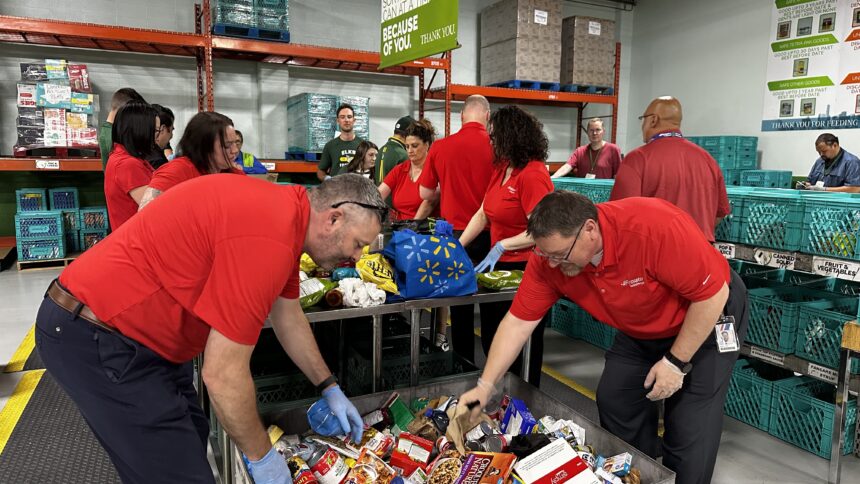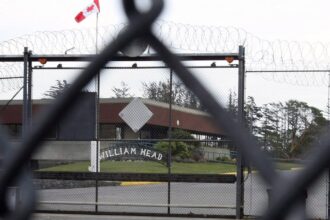The thunderous cheers at Commonwealth Stadium typically celebrate touchdowns, but this week they honored a different kind of victory as Edmonton Elks players traded their helmets for sorting bins at the annual Purolator Tackle Hunger initiative.
“There’s something powerful about seeing these athletes—these community heroes—rolling up their sleeves alongside volunteers,” said Maria Fernandez, Edmonton Food Bank’s community relations director. “When people see the Elks involved, it amplifies our message that food insecurity affects everyone, even in prosperous communities.”
The partnership between the CFL team and Purolator has become a summer tradition in Edmonton, with this year’s campaign aiming to surpass last year’s collection of over 22,000 pounds of non-perishable food items. Players sorted donations alongside Purolator employees at the stadium’s north entrance, creating an assembly line of goodwill that transformed boxes of pasta, canned goods, and staples into organized packages ready for distribution.
Quarterback Trevor Harris, participating in his third food drive with the team, emphasized the importance of community involvement. “The fans support us every game day, and this is our chance to give back,” Harris said while sorting canned vegetables. “Edmonton has embraced me since I arrived, and working with the Food Bank shows our players the real impact we can have beyond the field.”
The timing couldn’t be more critical. According to recent Canada News statistics, food bank usage across Alberta has increased by 34% since 2019, with nearly one-third of users being children. Summer months present particular challenges as school nutrition programs pause while donation rates typically decline.
Purolator’s regional director James Williamson explained how the company leverages its logistics expertise for the cause. “We’re in the business of moving packages efficiently across the country. During these food drives, we apply that same precision to ensure donations reach those who need them most,” Williamson noted. “Our employees volunteer their time because they see firsthand how distribution networks can address fundamental community needs.”
The food drive extends beyond the sorting event. Collection bins will remain at Commonwealth Stadium through the end of July, with fans encouraged to bring non-perishable items to upcoming home games. The CO24 Business community has also joined the effort, with several local companies setting up collection points at their offices.
Defensive lineman Almondo Sewell, entering his tenth season with the Elks, has participated in the food drive throughout his career. “Some of these kids who receive food come to our games wearing Elks jerseys. They’re our fans, and making sure they don’t go hungry means they can focus on being kids instead of worrying about their next meal,” Sewell said.
Nutritionists with the food bank provided guidance to ensure donations meet balanced dietary needs. “We’re especially grateful for protein-rich items like peanut butter and canned fish,” explained nutritionist Samantha Wong. “These foods provide essential nutrients that might otherwise be inaccessible to families on tight budgets.”
As Edmonton faces increasing housing costs and economic pressures, cross-sector partnerships like this become vital infrastructure in addressing food security. The question remains: can these collaborative models between sports organizations, corporations, and community services create sustainable solutions to hunger, or will increasing need continue to outpace even our most successful charitable efforts?











